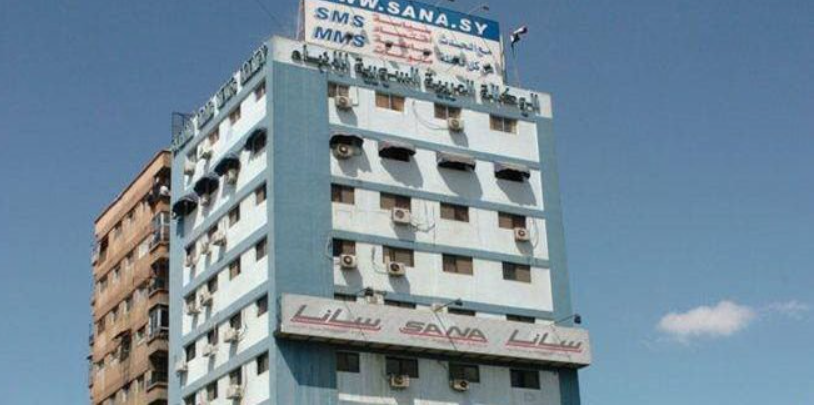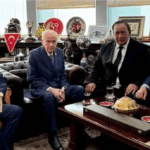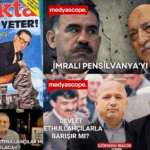Syria’s state-owned news agency SANA is relaunching this week with an expanded multilingual service, including Turkish and Kurdish, a move that closely follows a Geopolist (Istanbul Center for Geopolitics) op-ed urging Ankara to secure Turkish language rights in Syria’s emerging constitutional framework.
The relaunch, branded “SANA: A Turning Point,” will be unveiled at a ceremony on Wednesday at the National Center for Visual Arts in Damascus. According to SANA Director General Ziad al-Mahamid, the overhaul includes a digital-first strategy, expanded foreign correspondent networks, and publication in English, French, Spanish, Kurdish, and—significantly—Turkish.
The decision comes just days after Geopolist published a widely discussed op-ed titled “Learning from Iraq: Securing Turkish in Syria’s Constitution.” The essay argued that Turkey missed its chance in Iraq after 2003, when the new constitution recognized Arabic and Kurdish as national languages but confined Turkmen linguistic rights to local jurisdictions. The article cautioned Ankara against making the same error in Syria, where Turkmen have long faced marginalization despite their deep historical roots.
A Strategic Overlap
The timing is notable. Geopolist’s August 16 essay emphasized that embedding Turkish alongside Arabic and Kurdish in a post-war Syrian constitution could both protect the Turkmen minority and institutionalize Turkey’s long-term influence. Just days later, SANA confirmed Turkish would be among the agency’s official publishing languages — its first-ever inclusion.
The move carries more than symbolic weight: after decades in which linguistic diversity was suppressed, placing Turkish alongside Kurdish and other major languages signals that the new political order in Damascus can no longer ignore the Kurdish and Turkmen factors.
The Iraq Lesson
The Geopolist op-ed framed Iraq’s 2005 settlement as a cautionary tale. Despite Turkey’s leverage in post-Saddam Iraq, Ankara failed to secure national-level recognition for the Turkmen language. As a result, Turkmens were left with fragile protections, while Kurds consolidated sweeping autonomy under a bilingual framework that elevated Kurdish to national status.
According to Geopolist, the same imbalance could emerge in Syria if constitutional recognition extends only to Arabic and Kurdish. In such a scenario, Turkmens would remain at the margins, limiting Turkey’s ability to translate cultural affinity into long-term political influence.
Kurdish Dimension
The debate is also shaped by Kurdish demands. In April, Kurdish political actors convened a major conference calling for a “democratic and decentralized Syria,” with Kurdish recognized as an official language and local autonomy guaranteed in education and cultural affairs. This vision mirrors the trajectory of Iraq’s Kurds after 2003.
Turkey, however, has consistently opposed ethnically defined federalism. President Recep Tayyip Erdoğan dismissed the Kurdish plan as a “dream,” though he notably refrained from branding it “separatist” or “terrorist,” suggesting Ankara may accept decentralization framed in municipal rather than ethnic terms.
Soft Power at Play
Beyond constitutional bargaining, Turkey already exerts significant linguistic influence in Syria. In northern areas under Turkish-backed administration, curricula, signage, and municipal life increasingly feature Turkish alongside Arabic. Turkish schools and cultural programs have embedded the language in daily governance, while millions of Syrian refugees in Turkey — including Arabs, Kurds, and Turkmens — now speak Turkish fluently, creating a bilingual generation.
Geopolist argued that this groundwork provides the social base for institutionalizing the Turkish language at the national level. “Far from being an imposition, Turkish has become part of Syria’s lived reality,” the op-ed noted.
What SANA’s Relaunch Means
SANA’s relaunch, therefore, represents more than a media facelift. By choosing to broadcast in Turkish and Kurdish, Syria’s interim administration is testing the waters of linguistic pluralism. While critics view this as largely symbolic, others see it as a step toward embedding multilingualism into Syria’s new political architecture.
Whether this momentum will carry over to the constitution remains uncertain. Interim President Ahmad al-Sharaa’s March 2025 constitutional declaration reaffirmed Arabic as the sole official language, drawing criticism from ethnic minorities. But with negotiations ongoing, and with Ankara wielding considerable influence over Syria’s fragile transition, the question of Turkish recognition remains open.
Outlook
For Ankara, the stakes are clear. In Iraq, Turkish was left out of the national framework, weakening Turkmen rights and constraining Turkey’s soft power. In Syria, Geopolist argues that Turkey now holds unprecedented leverage to secure a different outcome. SANA’s decision to publish in Turkish may not settle the matter, but it suggests that the conversation has already shifted.



